The 2007 Vintage and Howard Goldberg, the Wine Curmudgeon
Over the weekend, you may have seen Howard Goldberg’s "Long Island Vines" column in the New York Times, which focuses on Long Island’s 2007 vintage and it’s potential quality.
He starts the column with quotes from Charles Massoud of Paumanok Vineyards and Roman Roth of Wolffer Estate, two of Long Island’s most respected vintners. The quotes mirrored what I’ve heard from local grape growers and winemakers.
John Levenberg, winemaker at Bedell Cellars told me that 2007 was a "a great growing season with plenty of heat and good sunshine, punctuated by bouts of rain that happened upon us when our vines were calling for water." Ben Sisson, who manages McCall Vineyard told me in an email that "Fruit quality overall was excellent with low disease, rot or physical damage. High sugar with low acid and correspondingly higher pHs was pretty typical throughout the region." Rich Pisacano, who manages vineyards on both forks for Wolffer Estate and Roanoke Vineyards even called the season "somewhat boring" because it was so ideal.
Across the board, these are the kinds of things I’ve been hearing for weeks, if not months.
From there, I expected Goldberg — especially given the column’s title "For East End, an Ideal Year" — to move onto discussing the extremely high brix levels or maybe some tasting notes based on 2007 wines he’s tasted from barrel.
No such luck. Instead, he suggests, in essence, that winemakers can’t be trusted. He tells us to "ignore sales hype…and approach every 2007 bottle with benign skepticism."
You know, he’s right. You can’t really believe winemakers when they tell you a vintage is "the best" or "spectacular." At least you can’t believe them blindly. Part of their job is to sell wine. They aren’t going to admit if a vintage is a poor one. At least not very often.
But, anyone who covers Long Island wines should know that this isn’t pure hyperbole this time around. Based purely on scientific fact, this was a terrific growing year. All of the "numbers" that winemakers and vineyard managers track during the season were better than they’ve ever been. Brix levels were through the roof, for Long Island, and according to Richard Olsen-Harbich of Raphael, it was one of the warmest seasons on record with almost 3500 growing degree days recorded, the most since 1998.
And, as someone who has tasted a fair amount of hanging fruit over the past several years, I can tell you that the ripeness went well beyond sugar levels or other measurable. Flavor development and tannin ripeness went further than I remember tasting.
Goldberg has a point when he says "Not everyone grows and harvests grapes the same way. Not all winemakers are equally experienced and lucky in the cellar." Grape-growing and winemaking talent is highly variable in our local wine community. Not every winemaker has the same abilities in the cellar.
But, I think that even second-tier winemakers learned a lot about how to work with riper-than-usual grapes in 2005. There are several wines from that vintage that lack structure and nuance. Many of the reds are plush but straightforward and simple. Many of the whites border on flabby. I think that winemakers just weren’t used to all that sugar and some didn’t act accordingly to bring balance and grace.
I think — and hope — we’ll see more balance and complexity in the 2007 wines. But the proof is in the tasting. Come back in a year for the whites and a year or two after that for the reds.
I’m just left wondering why Goldberg is raining on Long Island’s parade. The same points that he’s made about Long Island can be said of any group of winemakers in any region of the world. I’m sure that not every 2005 Bordeaux is spectacular, but that doesn’t mean the overall vintage isn’t still a classic one, does it?
More importantly, Goldberg’s column is probably one of the most-read sources of information on Long Island wine, doesn’t he have something more interesting to write about?
Then again, I’m writing about it here, aren’t I?


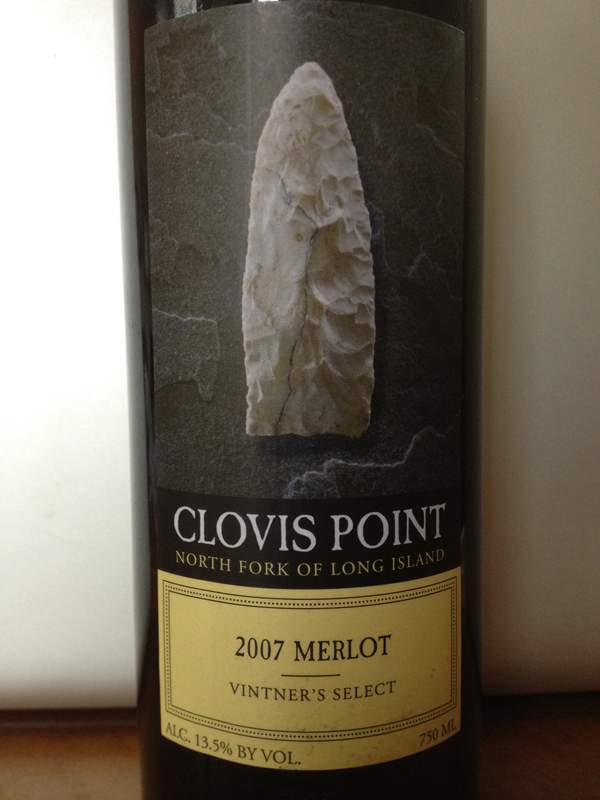





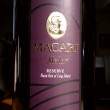
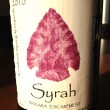
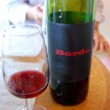
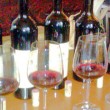
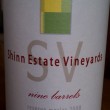

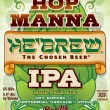
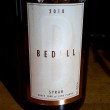
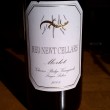
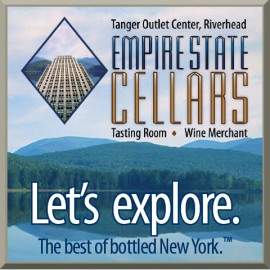
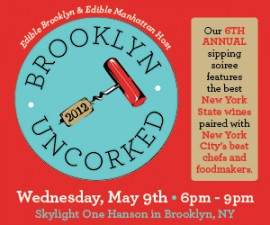

Yes you are.
Lenn, not only is Howard entitled to his point of view, but you should welcome the differing opinions and interpretations. Don’t get too close to your chosen area of specialization.
I understand the temptation. I’m mad about Italy and its wines, but I’m very well aware of the some the bullshit and shenanigans the producers there are capable of pulling, including some people that I know and like very much. Yep, they’re in the business of selling wine. So I do get a little skeptical when I hear the usual chorus of “Oh it’s been a great vintage, a fantastic year, the best since Noah!”
All that said, HG is a curmudgeon. I’d love to see a real dialogue get started between you two.
Thanks for chiming in, Terry.
I actually think, however, that I’m agreeing with most of what Howard is saying here. I just want more from his work (because I enjoy reading them) than this sort of “so what?” column.
I do think, however, that it’s easy to dismiss winemaker comments as spin, but if you actually taste the grapes and look at the numbers/stats/data, you can see through the spin and get to the truth.
Howard has an open invitation to not only comment on LENNDEVOURS, but to write a post if he’d like. I’d love to have that.
Lenn, your critique is baffling. You don’t disagree with the broad points that the Dec. 2 column makes, but you seem to say they were not worth making.
You write that “the same points” that I “made about Long Island can be said of any group of winemakers in any region of the world.” I construe this to mean that you dismiss such caveat emptor cautionings as a generalization that need not have been made in print — or at least in my column.
You ask, “Doesn’t he have something more interesting to write about?” “More interesting,” in your opinion, would be “extremely high brix levels” or barrel-tasting notes.
In my seasoned judgment, brix interests a only coterie of technically oriented consumers; further, I prefer to judge maturing wines, not embryos. Barrel tastings may not be final blends, and I have no way of knowing what happens in any cellar after I leave; that’s why I don’t participate in the Bordeaux primeur mania.
Indeed, there may be a “parade,” of first-rate 2007 reds and whites. But that doesn’t mean I should play lead trumpet in this possibly premature celebration, with the producers in effect writing the score and marching orders. My role is professional bystander.
You write: “Anyone who covers Long Island wines should know that this isn’t pure hyperbole this time around. Based purely on scientific fact, this was a terrific growing year. All of the ‘numbers’ that winemakers and vineyard managers track during the season were better than they’ve ever been.”
In other words, you’re saying that hyperbole exists on Long Island but not now. Well, sir, I don’t share a viewpoint that hyperbole hasn’t or won’t come into play about the 2007’s.
“Scientific fact” and “numbers” do not produce wine, humans do. First, science offers grounds that a plausible proposition is present; it hands down no verdicts about esthetics. Second, anyone who has tasted rieslings from Germany and knows how smitten German producers are by vineyard and cellar data routinely finds broad gulfs between their pronouncements and their wines’ actual quality.
No, I am not “raining on Long Island’s parade.” On the contrary, I am applying responsible journalism’s bedrock sunshine principle, which holds that the light of truth, so far as it is ascertainable, should illuminate reportage and opinion.
It is flattering to read that ‘‘Goldberg’s column is probably one of the most-read sources of information on Long Island wine.’’ If this is the case, then readers and consumers, who come first, are given long-term service by warning them at an exceptionally timely moment not to fall for producers’ predictable standard party line.
—-
Good call Lenn. Mr. Goldberg put more effort into his reply to you than he did into his column.
Howard,
Obviously there is a lot of ground to cover here, so I’ll try to do this in an organized fashion:
My comment about you having “something more interesting to write about” actually doesn’t include brix or any of that. I think that on some level your column is a bit of “nothing” since it can be said about any region in the world who lauds a vintage. You cover Long Island for the Times, so that’s what you chose to write about, but I’m not sure that this columns comes across as anything but out-of-left-field cynicism.
Hyperbole absolutely exists on Long Island…even in lesser years (say 2003). But the quotes you have included (and what most out here are taking about) focus on the growing season…not the 2007 wines. Brix and other measurables absolutely do ‘prove’ that 2007 was a terrific grape-growing season on Long Island. There is science in the art of growing, and making, wine, no? I think that it is newsworthy that sugar levels were higher this year than they typically are. I think it’s newsworthy that there were more growing degree days that most years. That promises riper fruit.
I think there is one somewhat major disconnect here that needs to be pointed out. You say that “Scientific fact” and “numbers” do not produce wine, humans do.” and you are absolutely correct. But, the hyperbole and praise that winemakers are sharing with me are about the fruit, not the final wines. I dare say that every single vineyard manager and winemaker I’ve spoken to always says something along the lines of “…but we won’t know until the final wines are blended and bottled.” There are two issues being discussed here: the growing season and the 2007 wines.
I’m sure that there are winemakers out here that are going to take this super-ripe fruit and do bad bad things to it. But, there will also be winemakers who do amazing things with it.
You say that your “readers and consumers” come first and I applaud that attitude because it’s a philosophy that you and I share. However, I believe in educating my readers beyond what your column does in this instance. Even if you don’t want to talk brix or growing degree days, you can talk about ripeness leves, sugar levels and growing days. You’ve mentioned things like carbonic maceration (I think) and malolactic fermentation. Brix isn’t any more technical than those, is it?
My role is that of professional bystander as well. I’ve tasted the grapes this year. I’ve lived through the weather that vineyards enjoyed this year. And I am separating the growing season from the resulting wines. Should consumers be running out to buy Long Island 2007 futures? Absolutely not. But, they can and should be excited at the potential of 2007. To say otherwise is absolutely raining on Long Island’s parade.
Great exchange. It’s fun to see a respected journalist taking the time to defend his arguments for the benefit of online enthusiasts.
2007 was a great growing season in the Finger Lakes as well. I haven’t heard yet whether winemakers think 2007 will exceed 2005 in overall quality or whether it may possess altogether different qualities.
If I may direct this to Howard, if your self-defined role is in fact to be a “professional bystander,” than perhaps you should be quiet? No one wants to hear from a bystander…
Lenn, one troubling downside of your blog is the occasional appearance of uncalled-for ad hominem remarks like Mr. Watts’s above. I trust that you would not defend them on grounds of free expression: After all, many responsible blog carry caveats about civility.
If an intelligent person wants to contribute to a serious, substantive blog debate, he should not have to wonder whether the blog’s management will encourage hit-and-run readers to sideswipe him.
Evidently Mr. Watts was in such a hurry to unload his coarse two-liner that he overlooked your own sentence above: “My role is that of professional bystander as well.” He was hoist by his own petard.
Should you and I assume that he doesn’t want to hear from you, too?
“Hoist by his own petard?” Oh good lord.
(defined as: hurt, ruined, or destroyed by the very device or plot one had intended for another.)
First off, I am hardly destroyed.
Secondly, laughable as I find it that you should choose to defend yourself by borrowing a colloquialism that has as its origin a French term for breaking wind, I’ll go ahead and treat your response seriously…
My intention, which apparently was not understood, was to point out that you are not in fact a “professional bystander” at all, nor is Lenn. You are both wine writers, and in theory, both professionals.
When you write an inflammatory article, Mr. Goldberg, and then receive the due criticism, I say stand in and take it, rather than copping-out by claiming to be merely a bystander. If I ever notice Lenn ducking in similar fashion, I’ll try and remember to tell him that too.
In closing, and in my defense, I though I actually phrased “Perhaps you should be quiet?” rather polittely. It was certainly more polite than what I was thinking.
p.s. Apologies if I did in fact breach any standards of civility.
And apologies also for two typos. I should have written “thought” and “politely.” Perhaps a message to self?
Howard’s column was essentially an op-ed piece - he didn’t present a single piece of factual information (unless you count the quotes from Charles and Roman). That does make it somewhat difficult to formulate a well-reasoned argument against his stance.
Having said that, I guess I just don’t see the point of “warning” consumers at an “exceptionally timely moment”. First off, it’s not timely - most of these wines won’t be on the market for months/years. Secondly, this is not Bordeaux - we’re not going to see retailers placing full page ads in the Times next Wednesday hawking Long Island futures and asking consumers to part with their money before they’ve had a chance to taste the wines. Sure, a few ambitious producers might offer some wines on a futures basis, but does that really justify dedicating an entire column to a warning (especially since in most cases those futures offerings will undoubtedly be accompanied by barrel tastings or other events that will give consumers an opportunity to sample the wines)?
I dunno - I just don’t get it.
Whew…this comment string got a little heated huh?
Hank, thanks for the comments, but this exchange has prompted me to begin crafting a comments policy. We are all passionate about wine, and sometimes that passion overflows and we come across as crass or disrespectful. Let’s all try to keep that in check, hmm?
This is a good discussion and I hate to see us sidetracked by hurt feelings.
Bah.
There was one person, and one person only, who got ruffled, and said person certainly did not indicate that their feelings had been hurt, rather, they took a deliberately inflammatory comment, given in response to a deliberately inflammatory piece of writing, and attempted to use it as an opportunity to level an insult.
Bah. And I’m in the wrong? Bah.